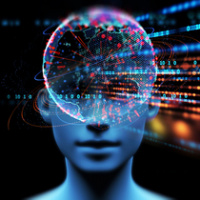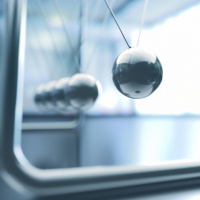Neumann120
A Rényi Intézet tisztelettel meghívja a Neumann János születésének 120. évfordulója alkalmából rendezett emlékév eseményére.
2023. szeptember 15-én a Rényi Alfréd Matematikai Kutatóintézet emléknapot tart a Neumann120 emlékév keretében.
Helyszíne: Rényi Alfréd Matematikai Kutatóintézet, Nagyterem
1053 Budapest, Reáltanoda u. 13-15.
Időpont: 2023.09.15. (péntek).
Bővebb információ az alábbi linken érhető el.
Program
9:15 - 9:20 Megnyitó - Pálfy Péter Pál, a Bolyai János Matematikai Társulat elnöke
9:20 - 10:05 Alain Connes (zoom)( Collège de France, IHES): von Neumann and rings of operators
10:10 - 10:55 Klaus Schmidt (University of Vienna, Department of Mathematics): John von Neumann and the birth of Ergodic Theory
11:00 - 11:30 Kávészünet
11:30 - 12:15 Matthew D. Foreman (University of California, Irvine, Department of Mathematics): von Neumann’s Classification Program is provably impossible
12:20 - 13:15 William Hugh Woodin (Harvard, Faculty of Arts and Science, Department of Philosophy): The axiom V = Ultimate-L and Goldberg's Ultrapower Axiom
A program angol nyelven zajlik.
Abstracts:
Alain Connes (zoom) : von Neumann and rings of operators
I will explain the fundamental role of the theory of factors in the elaboration of noncommutative geometry.
Klaus Schmidt : John von Neumann and the birth of Ergodic Theory
Modern ergodic theory (as we know it today) began around 1930 with groundbreaking work by Birkhoff, Koopman and von Neumann, to list only some of the main contributors in alphabetical order. The most celebrated results from this period were, of course, the ergodic theorems by Birkhoff and von Neumann, but many other concepts and results with significant impact on this new discipline also originated around that time, with major contributions by John von Neumann.
Prominent examples of these are ergodic decomposition (the decomposition of measure-preserving, or non-singular, dynamical systems into ergodic components), and the isomorphism problems (the problem of classifying the equivalence classes of dynamical systems with respect to various natural notions of isomorphism – including the weakest of these notions, orbit equivalence).
Matthew Foreman: von Neumann’s Classification Program is provably impossible
von Neumann can be viewed as the founder of Ergodic Theory, the study of the quantitative (probabilistic) behavior of systems that evolve through time. His foundational Mean Ergodic Theorem set the stage for later developments. Ergodic theorems rigorously justify estimating functions by sampling their values at regular intervals. In his 1932 paper he proposed classifying the behavior of differentiable systems up to measure preserving transformations (the “Isomorphism Problem”). Work of von Neumann and Halmos was an early success–it classified ergodic translations on Abelian groups, using spectral methods. Their results inspired an explosion of results, including major successes such as classifying Bernoulli systems. This talk will present a negative final outcome: von Neumann’s program of classification of C∞ measure preserving diffeomorphisms of the 2-torus is impossible in a rigorous sense. Very recent results show that Smale’s Program (from 1964) of classifying the qualitative behaviour of C∞-diffeomorphisms is similarly impossible. These will be briefly discussed at the end of the talk.
W. Hugh Woodin: The axiom V = Ultimate-L and Goldberg's Ultrapower Axiom
The axiom V = Ultimate-L is the leading candidate for the maximum possible generalization of Gödel's axiom, V = L. The Ultimate-L Program is the program to show that the axiom V = Ultimate-L s not refuted by large cardinal axioms and even more: that the conception of V itself ultimately requires that V = Ultimate L.
This involves a series of rather specific conjectures, which is the family of Ultimate-L Conjectures.
By recent theorem, if V = Ultimate-L then Goldberg's Ultrapower Axiom holds.
The unexpected feature here is that this can be proved without settling the Ultimate-L Conjectures.





